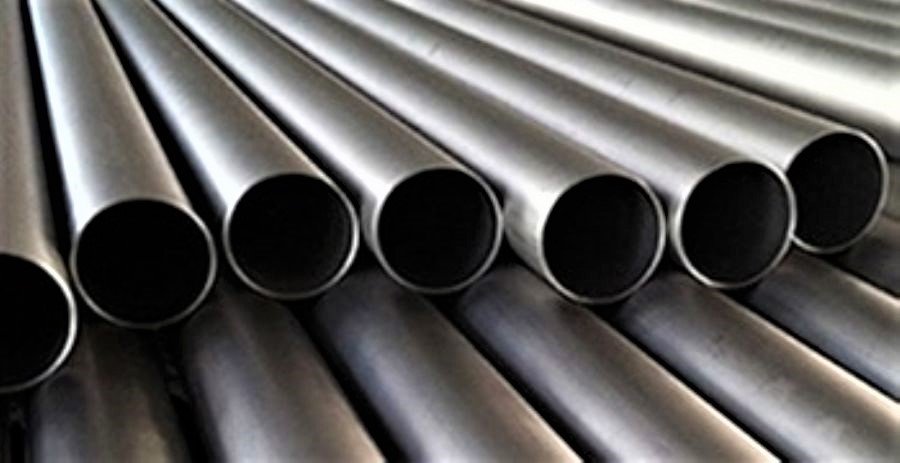EN 10294-1 Grade E235 steel is a widely used non-alloy material designed to meet the needs of industries requiring precision, durability, and machinability. Its unique properties make it an ideal choice for various applications, including EN 10294-1 Grade E235 Pipes, extensively employed in the automotive, machinery, and construction sectors. This guide explores the material’s properties, highlighting its advantages and industrial significance.
Mechanical and Physical Properties of EN 10294-1 Grade E235 Steel
Tensile Strength
EN 10294-1 Grade E235 steel demonstrates tensile strength between 340–490 MPa. This range ensures robust performance under stress and contributes to its versatility in load-bearing and structural applications.
Yield Strength
The minimum yield strength of 235 MPa ensures that the steel withstands significant stress without permanent deformation, making it highly reliable for demanding environments.
Ductility and Elongation
The steel exhibits a minimum elongation of 25%, ensuring flexibility during forming and machining. This characteristic reduces the likelihood of fractures or cracks during fabrication.
Density
E235 steel has a density of approximately 7.85 g/cm³, giving it excellent weight-to-strength performance. This property allows manufacturers to reduce component weight without compromising durability.
Thermal and Electrical Conductivity
EN 10294-1 Grade E235 steel offers moderate thermal and electrical conductivity. That ensures stability during operations involving temperature variations.
Surface Finish
E235 steel provides a smooth surface finish, which minimizes post-processing and enhances its appeal for precision applications, particularly for EN 10294-1 Grade E235 Pipe used in intricate machining tasks.
Chemical Composition of EN 10294-1 Grade E235 Steel
Carbon Content
E235 steel contains up to 0.17% carbon. This low carbon content improves weldability and minimizes the risk of cracking during welding.
Manganese
The manganese content, up to 1.4%, enhances the material’s strength and wear resistance, ensuring durability in tough environments.
Silicon
Silicon (up to 0.4%) improves toughness and prevents brittleness, ensuring structural reliability.
Trace Elements
Controlled levels of sulfur and phosphorus (each ≤0.045%) improve machinability without significantly affecting the steel’s mechanical properties.
Advantages of EN 10294-1 Grade E235 Steel
Outstanding Machinability
EN 10294-1 Grade E235 steel offers excellent machinability, which allows for easier shaping and finishing of EN 10294-1 Grade E235 Pipes. This property reduces production time and costs, making it a cost-effective choice for manufacturers.
Exceptional Weldability
The low carbon content and balanced chemical composition ensure E235 steel supports welding without preheating. Engineers can seamlessly join sections for construction and manufacturing projects.
High Dimensional Accuracy
Products like EN 10294-1 Grade E235 Pipes achieve tight tolerances and consistent dimensions, ensuring a perfect fit in mechanical and structural systems. This precision minimizes the need for additional adjustments during installation.
Resistance to Wear and Stress
E235 steel withstands wear and tear, ensuring long-term performance under high-stress conditions. This feature proves invaluable for critical components in machinery and vehicles.
Cost Efficiency
Compared to other steel grades, E235 delivers high performance at a lower price. Its machinability, weldability, and surface finish reduce production and maintenance costs, providing better overall value.
Corrosion Resistance (with Coatings)
Though not inherently corrosion-resistant, E235 steel can resist rust when paired with anti-corrosion coatings. This adaptability makes it suitable for use in environments prone to moisture or chemical exposure.
Applications of EN 10294-1 Grade E235 Steel and Pipe
Automotive Industry
The automotive sector uses EN 10294-1 Grade E235 Pipes for manufacturing components like drive shafts, suspension arms, and steering parts. These pipes provide high strength and reliable performance, meeting industry demands.
Construction Projects
EN 10294-1 Grade E235 Pipes serve as frameworks, supports, and load-bearing elements in the construction industry. Their high yield strength and dimensional precision ensure structural stability.
Machinery Components
Heavy machinery industries use E235 steel for hydraulic cylinders, bearings, and other critical parts. The material’s machinability and durability make it a preferred choice for these applications.
Oil and Gas Sector
The oil and gas industry uses EN 10294-1 Grade E235 Pipes for pipelines, drilling equipment, and other infrastructure. These pipes efficiently handle high-pressure and harsh environments.
Maintenance and Longevity of EN 10294-1 Grade E235 Steel
Proper maintenance significantly extends the lifespan of EN 10294-1 Grade E235 Pipes and steel components. Here are some tips:
Apply Protective Coatings: Use anti-corrosion coatings to enhance durability in moisture-prone environments.
Regular Inspections: Inspect pipes and components periodically to identify wear or damage.
Appropriate Lubrication: Use suitable lubricants to reduce friction and stress during machining or operational use.








